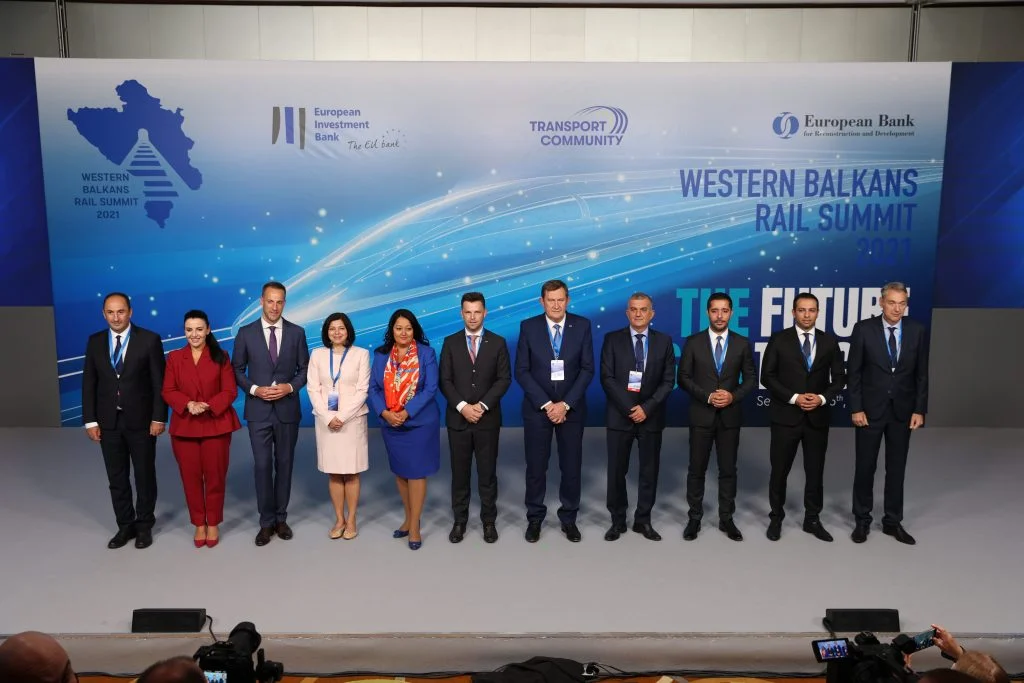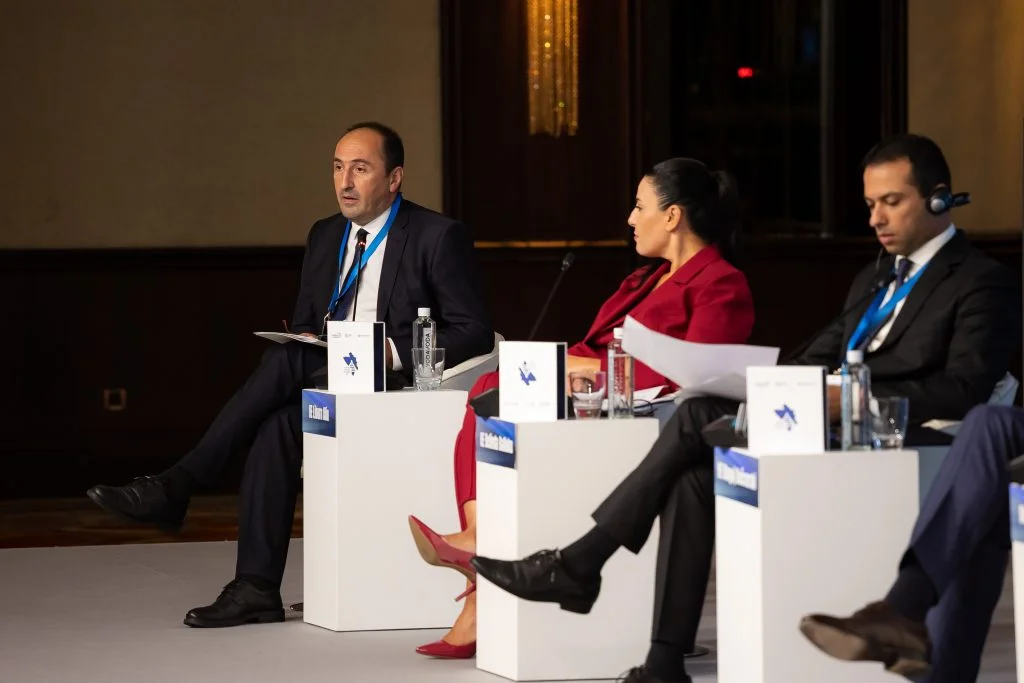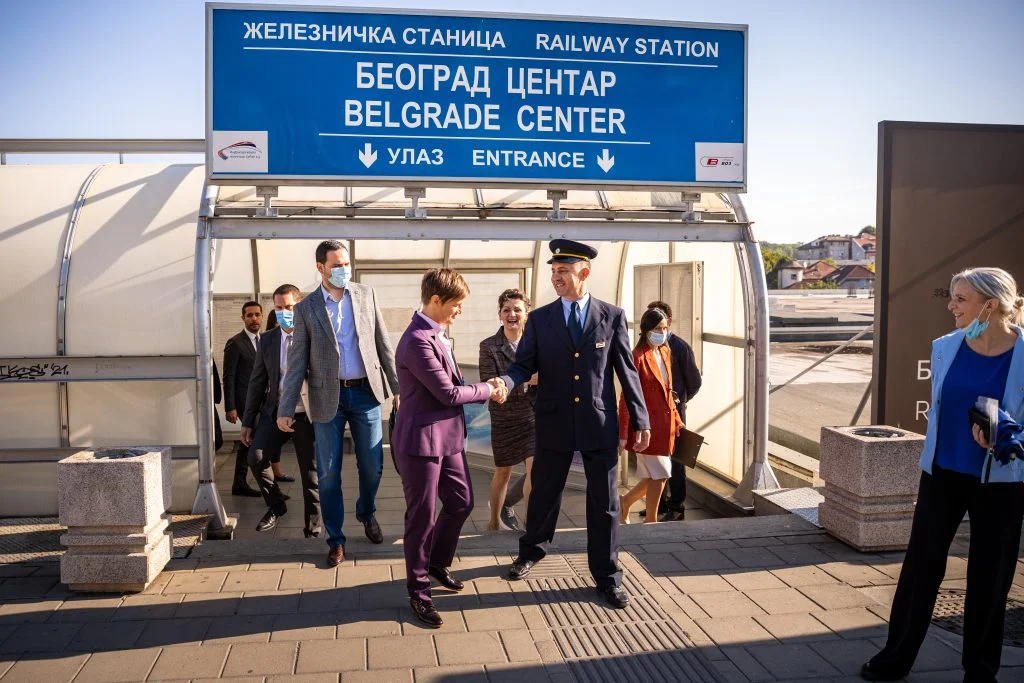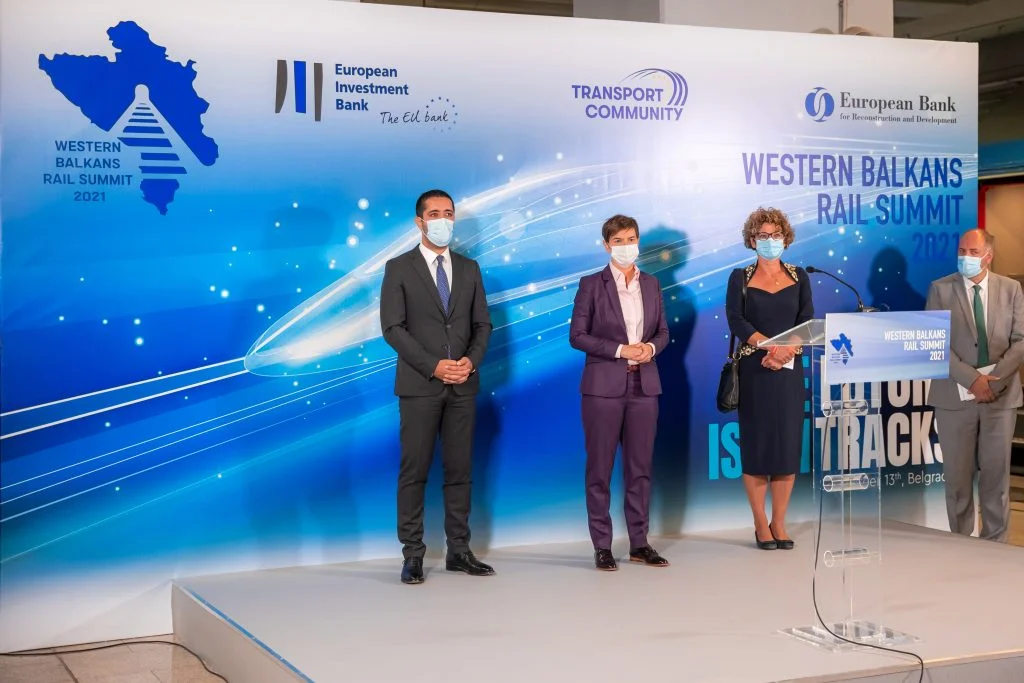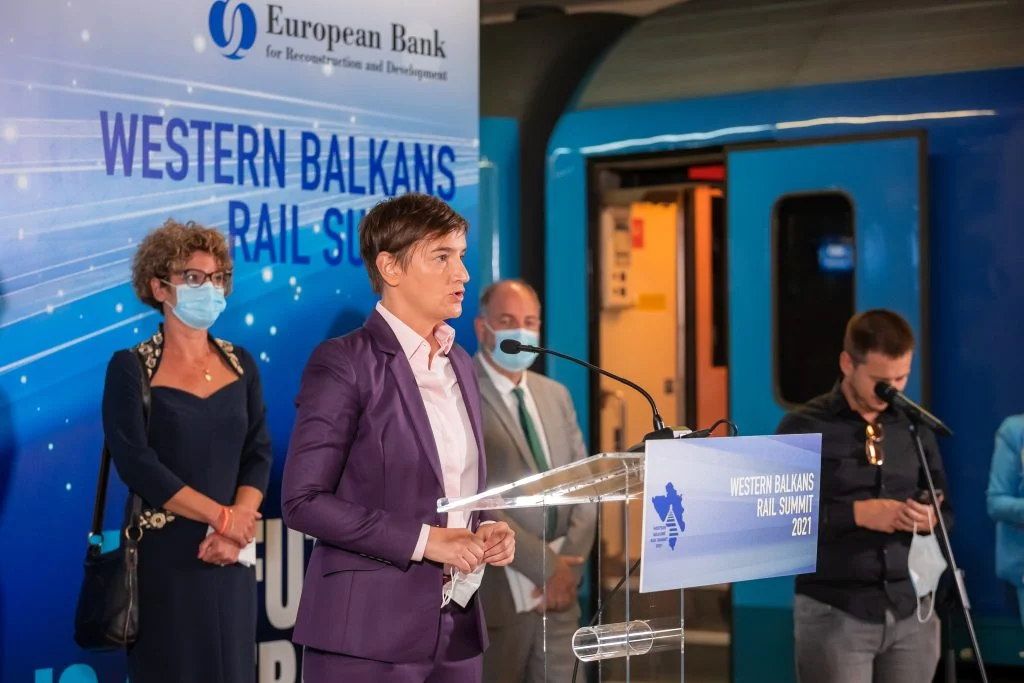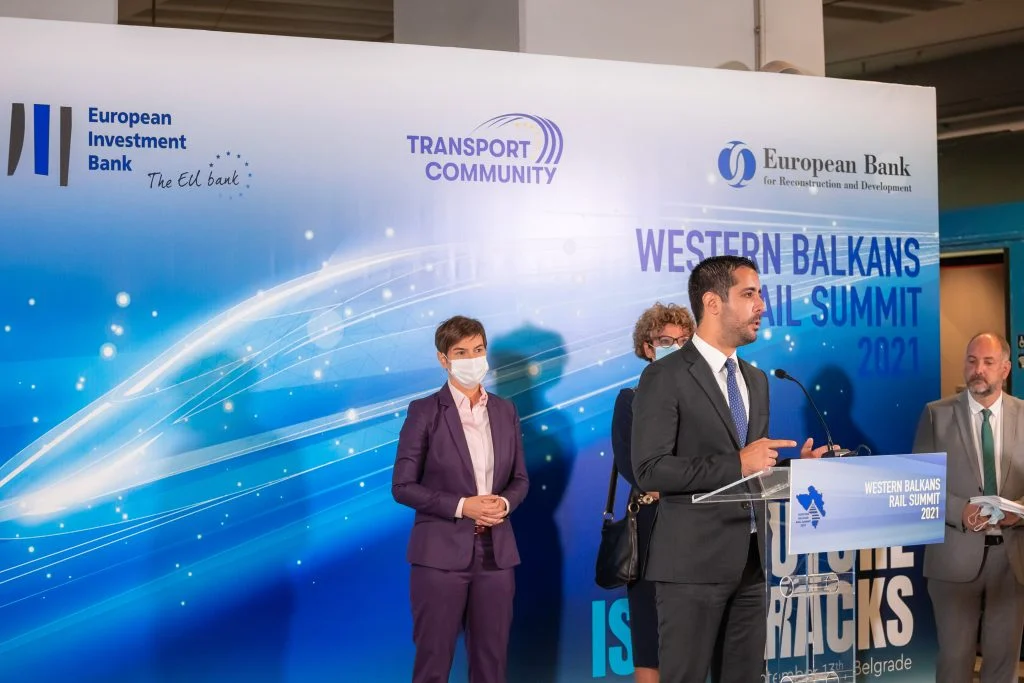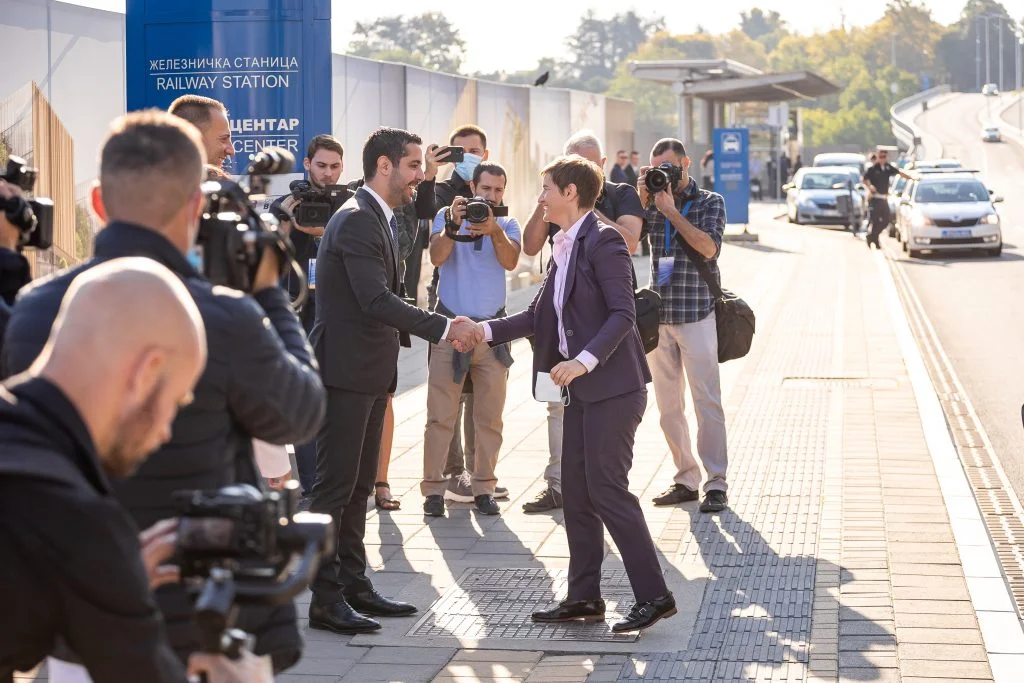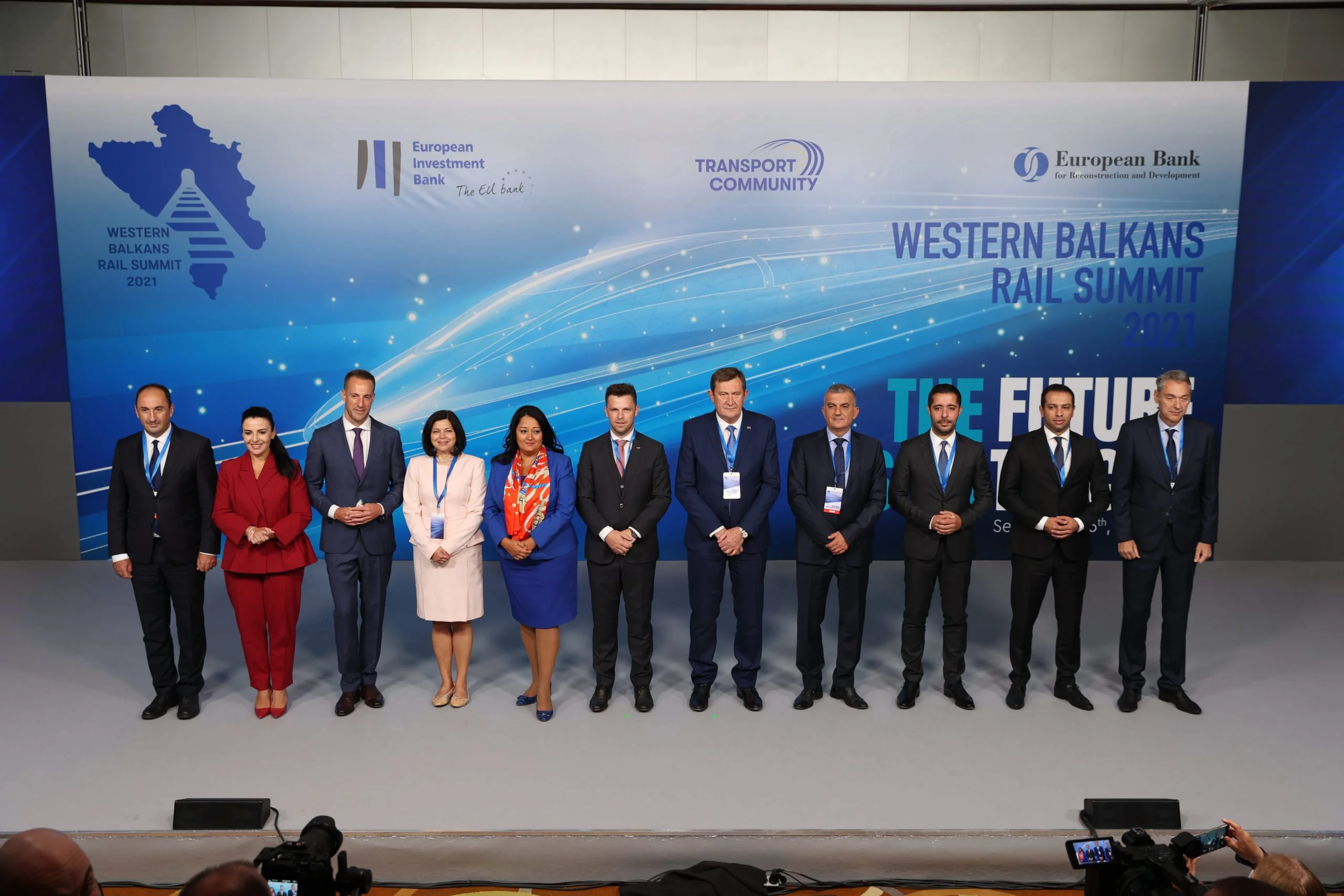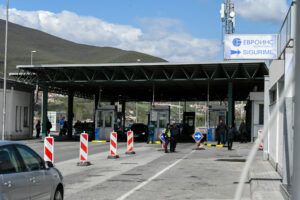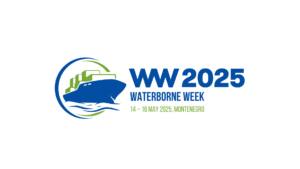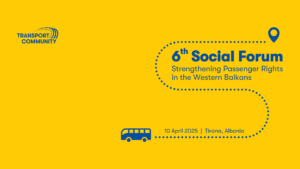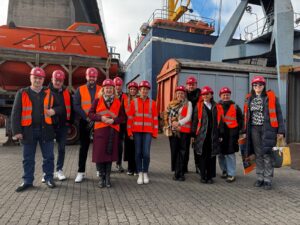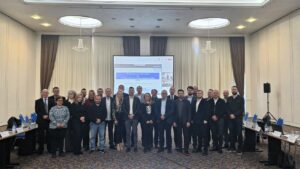Western Balkans Rail Summit, “The Future is on Tracks”
The region commits to modernisation of rail and re-establishing intercity links
Building a modern, digitalised rail network, with direct express train connections between major cities in the region will help establish better connectivity and provide safer and environmentally sustainable mode of transport for people and businesses in the Western Balkans. This was recognised as key priority of the Dedication to Rail, signed on 13 September by ministers in charge of transport in the region at the Western Balkans Rail Summit, held in Belgrade. The event was organised by the Transport Community Permanent Secretariat, the European Investment Bank (EIB) and the European Bank for Reconstruction and Development (EBRD), and under the auspices the Ministry of Construction, Transport and Infrastructure of Serbia.
The summit gathered ministers in charge of transport from the Western Balkans and neighboring countries, representatives of the European Commission and rail professionals for discussions on how to advance the regional and European transport policy and contribute to building a digitalised and sustainable rail transport systems in the region. The authorities committed to a number of priorities including to re-establish direct intercity train links connecting the region and the EU, enhancing digitalisation of the railway systems to interconnect and exchange data for cross border passenger and freight transport, increasing safety of level crossings, as well as opening of the rail markets.
“I trust that the First Western Balkans Rail Summit will create momentum to influence positive change with focus on investments in rail transport and reforms of rail policies that will make rail travel attractive again for the citizens and business in the region. This can be done by focusing simultaneously on two tracks – adopting standards and building and improving infrastructure. It is encouraging to see that the summit brought together policy makers and representatives of financial institutions that can lead the change in positive direction. As one of the most environmentally friendly transport means, rail is responsible for a tiny fraction of transport-related greenhouse gas emissions and has huge potential to contribute to region’s economic prosperity,” Mr Matej Zakonjsek, Director of Transport Community Permanent Secretariat said.
The summit was organised to coincide with the arrival of Connecting Europe Express (https://www.connectingeuropeexpress.eu/) train. As part of the European Year of Rail, the train, which will cross 26 countries of the continent, arrived in Belgrade on 12 September, from where it will continue its tour to Skopje and beyond.
The European Year of Rail is part of the EU’s efforts under the European Green Deal, the EU’s plan to make its economy sustainable by achieving climate neutrality by 2050. One of the key elements of the plan is to roll out cleaner and healthier means of transport, as the transport sector is currently responsible for about 25% of the Union’s greenhouse gas emissions. The European Green Deal seeks a 90% reduction in transport emissions by 2050. With only 0.4 % share of greenhouse gas emissions in total EU transport, rail emits far less CO2 than equivalent travel by road or air and is one of the most sustainable, innovative and safest transport modes in the EU. Comparing to the EU where 75% of total train-kilometers are travelled by electricity-powered trains, in the Western Balkans less than one third of rail tracks is electrified.
